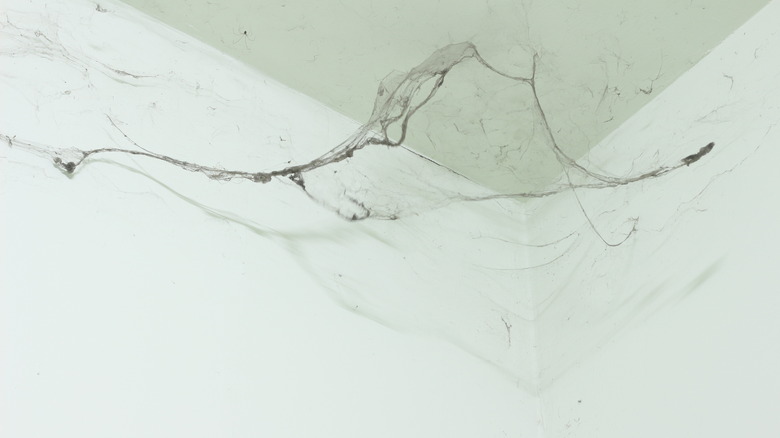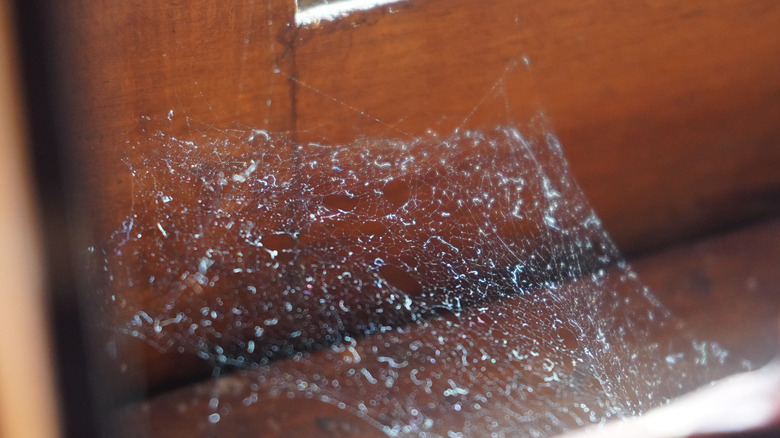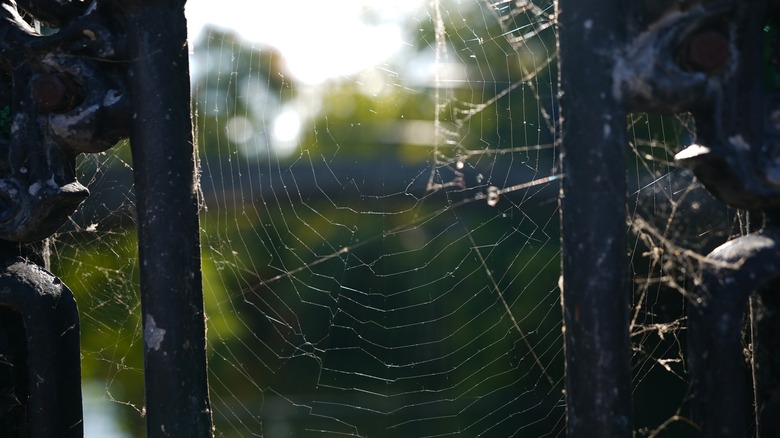What You Should Know Before Clearing Spider Webs At Home
There's nothing fun about living in a house with tendrils of dust-covered spiderwebs hanging in every corner. It's an unsightly reminder that your home is not just due for a cleaning, but that other little critters have taken up residence in the dark recesses of your abode. If you're serious about eliminating spiderwebs, you should consider dusting your entire house at least every two weeks. However, depending on your employment, home life, house size, and love of cleaning, most people don't have that much time to dedicate to dusting. It often involves a lot of work, such as covering your furniture, dusting every surface, and running the vacuum when you're finished. (Not most people's idea of a good time.)
Thus, it's important to note that spiderwebs and cobwebs are different. Even though these two words are used interchangeably, a spiderweb is a web that still has a spider living in it, whereas a cobweb is an abandoned web that looks all cattywampus and collects dust like no tomorrow. So before you go on a cleaning rampage, there are a few things you need to know about spiderwebs.
Knock knock, no one's home
It's tempting to grab your vacuum cleaner when you see arachnid nets hanging in corners and messing with your house's homey ambiance. But before you opt for full-force destruction, you'll want to check and ensure that the web itself isn't inhabited. Per The Maids, an uninhabited spiderweb, called a cobweb, will often collect dust and debris, look dingy or gray, and might even have little dead bug carcasses hanging in them. Assured Environments notes that most spiders only tend to live in their webs for a few days, so most webs that you find have been long since damaged and abandoned.
If the web doesn't show any signs of wear, isn't super dusty, and you saw an eight-legged roomie hanging out within the past 24 hours, it could be that the spider went out for a night on the town. Also, check the web for any fluffy cotton ball-looking spheres. That's an egg sac. Don't destroy it, but move it somewhere else. Chances are, if there's an egg sac, the spider is still coming back home, via Britannica.
They're almost like roommates
As tempting as it may be to evict the spiders in your home, it's not recommended (for the most part). In fact, unless it's a black widow, brown recluse, or similarly dangerous variety, they likely do less harm than good. Grass spiders can be big and fast, but they're not dangerous, while wolf spiders don't use webs and would rather hide from you. Chances are you're mainly going to run into daddy long legs, which, contrary to popular belief, are not deadly to humans. They also don't build webs.
While spiderwebs might freak you out, they're really quite beneficial as your home's natural pest control system since their residents eat nearly whatever they catch. This includes, but isn't limited to: mosquitoes, earwigs, fleas, cloth-eating moths, and that one annoying fly that always appears out of nowhere when you're trying to concentrate. However, if you're adamant about not becoming roomies with an eight-legged squatter, just destroy the web — after you've confirmed it's an unviable one. If you find a spider, it's better to practice catch and release. And remember: The experience is probably much more traumatic for them than for you.


